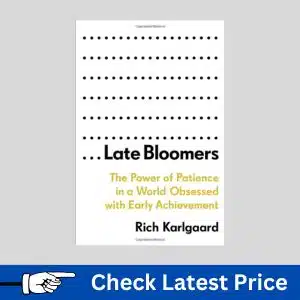Never too late – you can have a great career at any age!
Kalgaard says, “Recent research suggests that we need to modify our understanding of how people mature from adolescence to adulthood. Between the ages of 18 and 25, most people are still living in a volatile post-adolescence. In both adolescent and young adult brains, the prefrontal cortex—the processing center of our frontal lobe—is the last part to fully develop, and it is responsible for complex functions such as planning and organizing, problem solving, memory, attention and inhibition.”
Many adults place high standards on our youth that cause self-doubt and anxiety.
Psychologists use the term executive function to refer to neurological maturity. This term denotes the ability to foresee possible consequences and plan effectively. Executive functions help us manage all of our life tasks. People develop at different ages. The young adult who is not successful early on does not necessarily lack potential, inspiration or intelligence; your expectations might simply not be realistic for them at that time.
Many of us, including myself, felt overlooked early in our careers. As skills, creativity and talents often develop later in life, it may be that we were had not fully matured at that time. In fact, stories about late bloomers are very common. Take Laura Ingalls Wilder for example. She was 65 years old when her first book, “Little House in the Big Woods” was published. Julia Child released her first cookbook at age 50. And Rodney Dangerfield did not catch his big break until the age of 46. The list goes on and on.
Rich Karlgaard’s wrote his book, “Late Bloomers”, because he was a late bloomer himself. In it, he explores “what it means to be a late bloomer in a culture obsessed with SAT scores and early success, and how finding one’s way later in life can be an advantage to long-term achievement and happiness”.
“Like me, most late bloomers will discover that they have greater opportunities to succeed on alternative paths, far from the madness and pressure of early achievement. Today’s obsessive drive for early achievement—and the taint of failure for those who do not attain it—has squandered our national talent and stunted our creativity.” says Karlgaard.
All of us know someone who seems stuck. Do not give up on yourself, or others, even when those around us are not supportive. Fresh inspiration and passions can develop throughout our lives. The bottom line – you can have a great career at any age!
Buy the Book:
originally pubished on Jan 3, 2021
updated June 30, 2023












